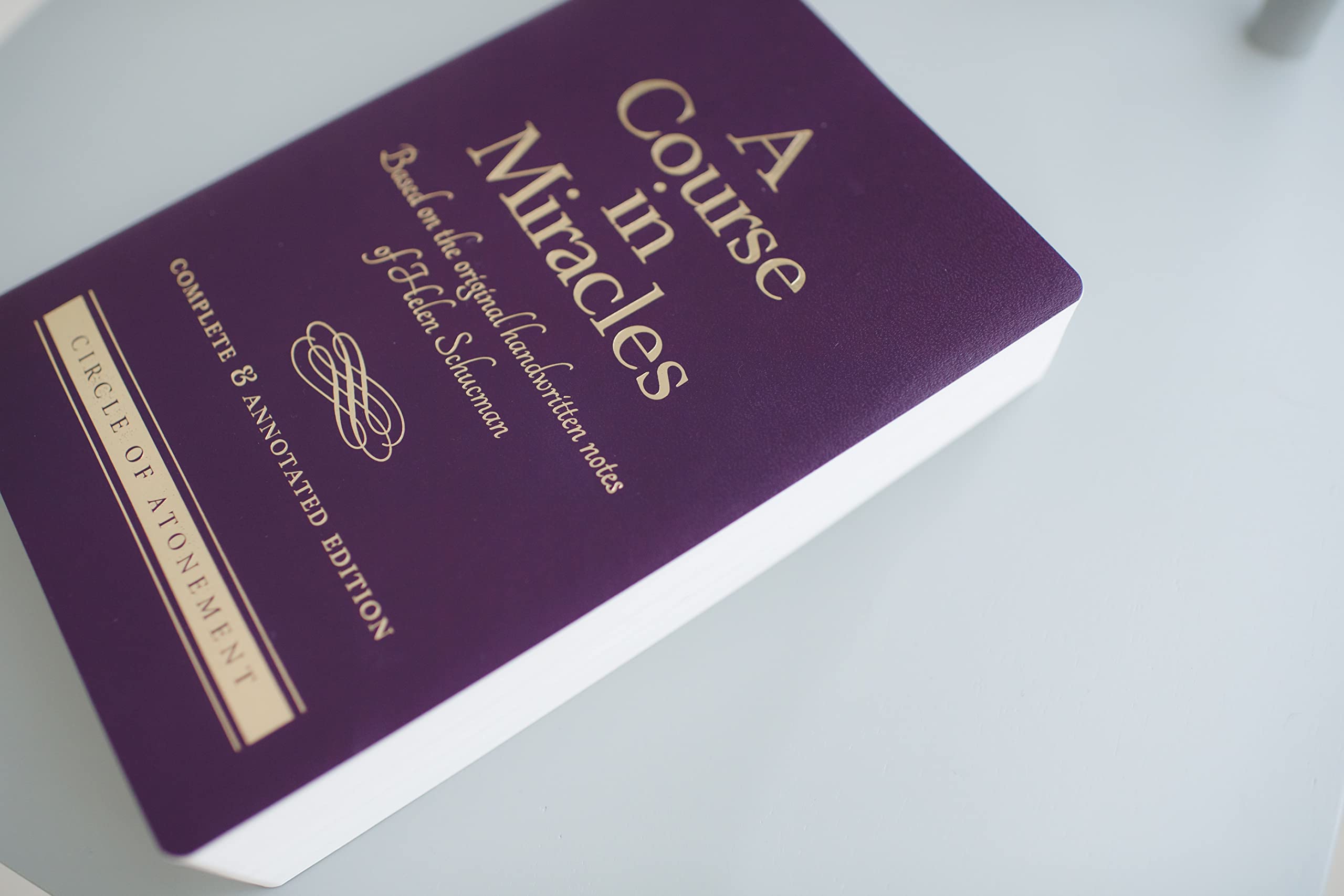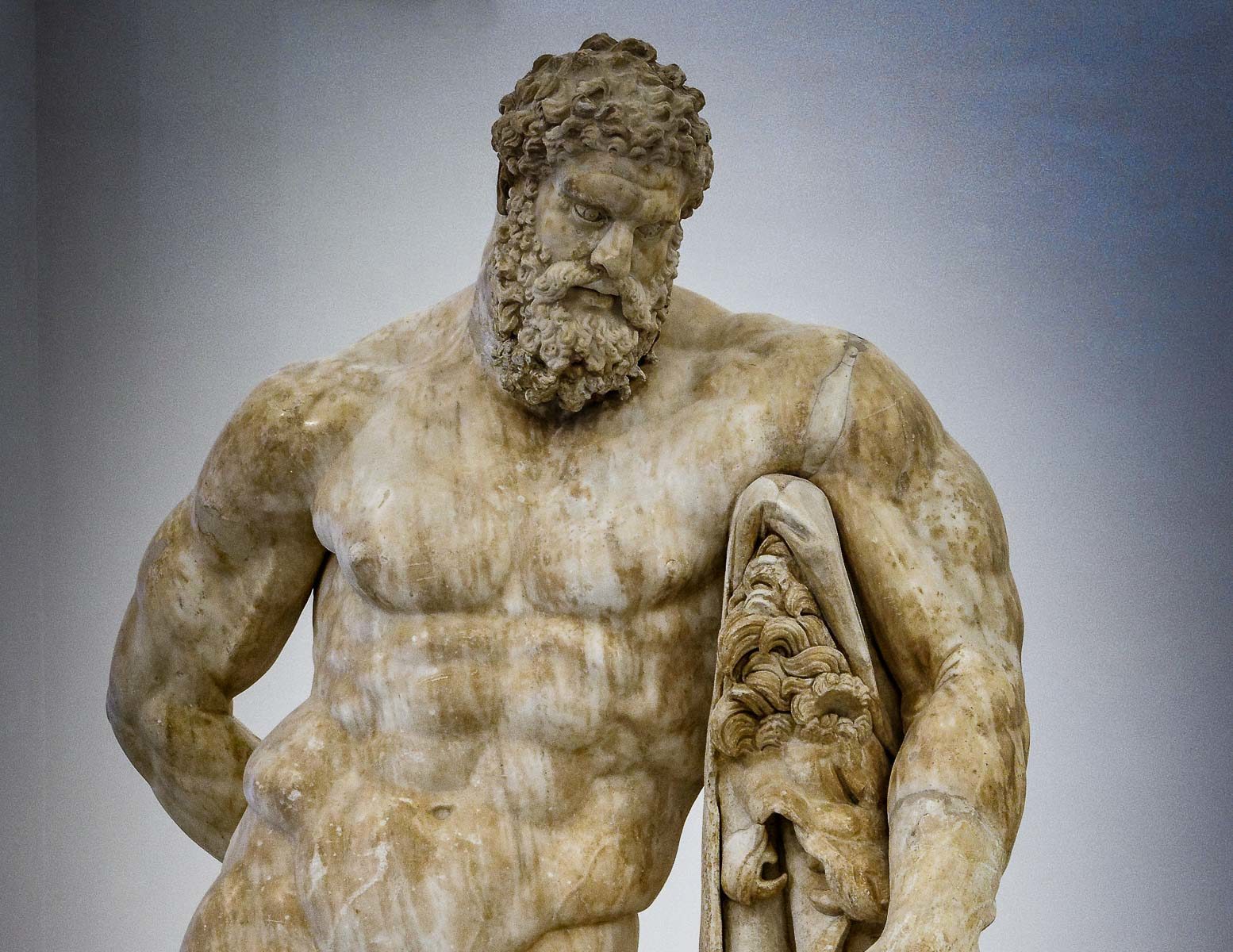Home>Theology and Spirituality>What Is The Atonement In A Course In Miracles


Theology and Spirituality
What Is The Atonement In A Course In Miracles
Published: February 9, 2024
Ericka Andersen, an editor at Christian.net, expertly merges digital strategy with content creation, focusing on faith and societal issues. Her communication skills enhance the platform's engaging narratives, fostering meaningful dialogue on belief's impact on society.
Discover the profound concept of the Atonement in A Course in Miracles and its significance in theology and spirituality. Explore the transformative power of forgiveness and healing.
(Many of the links in this article redirect to a specific reviewed product. Your purchase of these products through affiliate links helps to generate commission for Christian.net, at no extra cost. Learn more)
Table of Contents
Introduction
The concept of atonement holds profound significance in various spiritual and religious traditions. It represents the idea of reconciliation, forgiveness, and the restoration of harmony between humanity and the divine. Atonement is not merely a theological concept; it is a transformative and healing force that permeates the core of human existence. In A Course in Miracles, the atonement is a central theme, offering a unique perspective on the process of awakening to our true nature and releasing the illusions that obscure it.
Atonement, in its essence, embodies the idea of making amends for wrongdoing and restoring a state of unity and wholeness. It acknowledges the inherent capacity for redemption and the possibility of transcending past errors through the power of love and forgiveness. This concept transcends religious dogma and speaks to the universal human experience of seeking reconciliation and inner peace.
In the context of A Course in Miracles, the atonement is not about seeking external forgiveness from a higher power, but rather about recognizing the illusory nature of guilt and fear and awakening to the truth of our divine identity. It invites individuals to release the burden of self-condemnation and embrace the inherent innocence that lies beyond the ego's illusions.
The journey of atonement is a deeply personal and transformative process that invites individuals to confront their inner conflicts, heal their relationships, and transcend the limiting beliefs that perpetuate suffering. It is a path of self-discovery and self-acceptance, leading to the recognition of the interconnectedness of all beings and the inherent unity of creation.
As we delve into the profound teachings of A Course in Miracles, we embark on a journey of self-inquiry and inner healing, guided by the principles of atonement. This journey is not merely an intellectual exercise but a profound invitation to experientially embody the transformative power of forgiveness, love, and awakening. Through the lens of atonement, we are called to transcend the ego's illusions and awaken to the truth of our divine nature, embracing a state of inner peace and wholeness.
The atonement, as presented in A Course in Miracles, offers a radical shift in perspective, inviting us to release the shackles of guilt and fear and embrace the liberating truth of our inherent innocence and divine identity. It is a journey of awakening to the transformative power of love and forgiveness, transcending the limitations of the ego, and embracing a state of profound peace and unity.
Read more: What Is Atonement
Understanding the concept of atonement
Atonement, a fundamental concept in spirituality and theology, encompasses the idea of reconciliation, forgiveness, and the restoration of harmony between humanity and the divine. It is rooted in the recognition of the human capacity for redemption and the transformative power of love and forgiveness. The concept of atonement transcends religious boundaries, resonating with the universal human experience of seeking inner peace and reconciliation.
At its core, atonement acknowledges the human propensity for error and the longing for reconciliation and healing. It embodies the profound truth that individuals possess the inherent capacity to transcend past mistakes and awaken to their true nature. Atonement is not about seeking external absolution or appeasing a punitive deity; rather, it is a deeply personal and transformative journey of self-discovery and inner healing.
The concept of atonement invites individuals to confront their inner conflicts, heal their relationships, and release the burden of guilt and self-condemnation. It emphasizes the transformative power of love and forgiveness in transcending the illusions of the ego and awakening to the truth of one's divine identity. Atonement is a process of recognizing the illusory nature of fear and guilt, and embracing the inherent innocence that lies beyond the ego's distortions.
In essence, atonement is a journey of awakening to the interconnectedness of all beings and the inherent unity of creation. It is a call to transcend the limiting beliefs that perpetuate suffering and to embrace a state of inner peace and wholeness. Atonement is not a one-time event but an ongoing process of self-inquiry, forgiveness, and awakening to the truth of one's divine nature.
Atonement, as a concept, holds the promise of liberation from the shackles of guilt and fear, leading to a profound sense of inner peace and unity. It is a transformative force that invites individuals to release the illusions of the ego and embrace the liberating truth of their inherent innocence and divine identity. The concept of atonement, when understood and embodied, becomes a catalyst for personal and collective healing, fostering a deeper sense of compassion, forgiveness, and unity among all beings.
The role of atonement in A Course in Miracles
In A Course in Miracles, the concept of atonement holds a central and transformative role in the process of spiritual awakening and inner healing. Unlike traditional religious interpretations of atonement, the Course presents a unique perspective that transcends the notion of seeking external forgiveness from a higher power. Instead, it emphasizes the inherent innocence and divine nature of individuals, inviting them to release the illusions of guilt and fear and awaken to the truth of their being.
The Course teaches that atonement is the undoing of the belief in sin, guilt, and fear. It emphasizes that individuals are not inherently sinful or unworthy but have simply forgotten their true nature. The role of atonement in A Course in Miracles is to facilitate the recognition of this forgotten truth and to guide individuals in releasing the barriers to the awareness of love's presence.
Central to the Course's teachings is the idea that atonement is achieved through the practice of forgiveness. Forgiveness, as presented in the Course, is the means by which individuals release their grievances and judgments, thereby freeing themselves from the burden of guilt and opening their hearts to the experience of love. Through the process of forgiveness, individuals dismantle the ego's defenses and allow the light of truth to shine through, leading to a profound shift in perception and a deep sense of inner peace.
Atonement in A Course in Miracles is not a one-time event but a continuous, moment-to-moment practice. It is a process of undoing the ego's thought system and aligning with the truth of one's divine nature. The Course emphasizes that atonement is the natural state of being and that individuals need only remove the obstacles to its awareness.
Furthermore, the Course teaches that the role of atonement extends beyond the individual to encompass the collective healing of humanity. As individuals awaken to the truth of their inherent innocence and divinity, they become beacons of light, extending forgiveness and love to others and contributing to the healing of the collective consciousness.
In essence, the role of atonement in A Course in Miracles is to guide individuals in awakening to the truth of their divine nature, releasing the illusions of guilt and fear, and extending forgiveness and love to themselves and others. It is a transformative process that leads to the recognition of the interconnectedness of all beings and the inherent unity of creation, fostering a profound sense of inner peace and wholeness.
How to apply the atonement in daily life
Applying the principles of atonement in daily life involves a conscious and transformative shift in perception and behavior. Atonement, as presented in A Course in Miracles, offers practical guidance for integrating its core teachings into everyday experiences, fostering a sense of inner peace, forgiveness, and unity.
-
Practice Forgiveness: The cornerstone of applying atonement in daily life is the practice of forgiveness. This involves releasing grievances, judgments, and resentments held against oneself and others. By consciously choosing to forgive, individuals free themselves from the burden of guilt and open their hearts to love and compassion.
-
Release Judgment: Atonement invites individuals to relinquish the habit of judgment, both towards themselves and others. By recognizing the inherent innocence and divine nature within each individual, one can transcend the ego's tendency to condemn and criticize, fostering a climate of understanding and acceptance.
-
Choose Love Over Fear: Atonement encourages individuals to make choices from a place of love rather than fear. This entails consciously aligning with thoughts, words, and actions that emanate love, kindness, and compassion, thereby dispelling the illusions of separation and discord.
-
Embrace Inner Peace: Applying atonement in daily life involves cultivating a state of inner peace through mindfulness and self-reflection. By turning inward and connecting with the stillness within, individuals can anchor themselves in a space of tranquility, allowing the transformative power of atonement to unfold.
-
Extend Forgiveness to Others: Atonement extends beyond personal healing to encompass the extension of forgiveness and love to others. By recognizing the shared divinity and interconnectedness of all beings, individuals can become agents of healing, contributing to the collective awakening and unity of humanity.
-
Live in Alignment with Truth: Atonement calls for living in alignment with the truth of one's divine nature. This involves making conscious choices that reflect honesty, integrity, and authenticity, thereby dispelling the illusions of the ego and embracing the liberating truth of one's inherent innocence.
-
Cultivate Compassion: Atonement invites individuals to cultivate compassion towards themselves and others. By acknowledging the shared struggles and aspirations of humanity, individuals can foster a climate of empathy and understanding, nurturing a sense of unity and interconnectedness.
In essence, applying the principles of atonement in daily life entails a conscious and committed practice of forgiveness, love, and inner healing. It is a transformative journey that invites individuals to transcend the illusions of the ego, embrace their inherent divinity, and contribute to the collective awakening and unity of all beings.
Conclusion
In conclusion, the concept of atonement, as elucidated in A Course in Miracles, offers a profound and transformative perspective on the process of awakening to our true nature and releasing the illusions that obscure it. Atonement, far from being a mere theological concept, embodies the universal human experience of seeking reconciliation, inner peace, and the restoration of harmony. It transcends religious dogma, inviting individuals to embark on a journey of self-discovery and inner healing, guided by the principles of forgiveness, love, and awakening.
The role of atonement in A Course in Miracles is pivotal, guiding individuals in recognizing the illusory nature of guilt and fear and awakening to the truth of their divine identity. It emphasizes that atonement is not about seeking external forgiveness from a punitive deity but about releasing the burden of self-condemnation and embracing the inherent innocence that lies beyond the ego's illusions. The teachings of the Course underscore the transformative power of forgiveness in dismantling the ego's defenses and aligning with the truth of one's divine nature, fostering a profound shift in perception and a deep sense of inner peace.
Applying the principles of atonement in daily life entails a conscious and transformative shift in perception and behavior. It involves practicing forgiveness, releasing judgment, choosing love over fear, embracing inner peace, extending forgiveness to others, living in alignment with truth, and cultivating compassion. This conscious integration of atonement principles fosters a sense of inner peace, forgiveness, and unity, contributing to personal and collective healing.
In essence, the concept of atonement in A Course in Miracles offers a radical shift in perspective, inviting individuals to release the illusions of guilt and fear and awaken to the liberating truth of their inherent innocence and divine identity. It is a transformative journey of self-inquiry and inner healing, leading to the recognition of the interconnectedness of all beings and the inherent unity of creation. Through the lens of atonement, individuals are called to transcend the ego's illusions and embrace a state of profound peace and wholeness, contributing to the collective awakening and unity of humanity.















